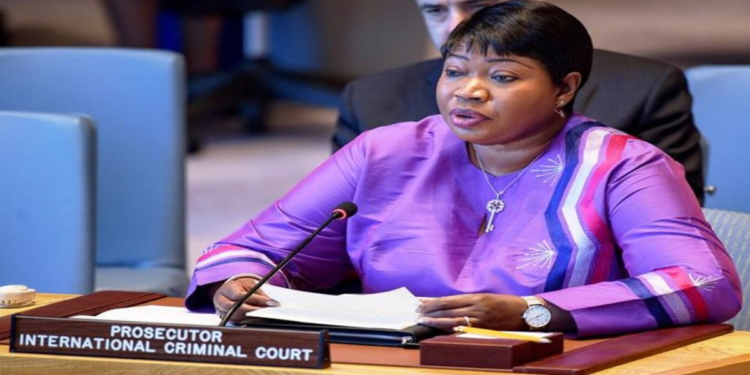By Waga Odongo
Fatou Bensouda’s past has been dramatically brought into the limelight at the first session of Gambia’s Truth and Reconciliation and Reparations Commission. The ICC Chief Prosecutor was mentioned by Batch Samba Jallow, who survived detention and torture, for ordering that his sedition charge be substituted with treason – an offence that carries the death penalty on conviction. Jallow told the 11-member commission that Bensouda, then the deputy director of prosecutions, collaborated with President Yahya Jammeh to falsely charge him with treason. He also accused her of making false claims in court that the Gambian state at the time was working towards securing the release of political detainees. He further claimed that Bensouda told a newspaper that he had been granted access to a lawyer when this was not the case. Jallow’s testimony, just like others heard in the first session of the TRRC, focused on the July 22, 1994 military coup d’etat that brought Jammeh to power.
The testimonies revealed the circumstances that led to the coup d’etat, the coup itself, and the aftermath that saw the junta consolidate power, and hunt down its enemies. Jallow said his problems with the junta started when he rebuffed the former Central River Region Commissioner (retired) Army Captain Momodou Bojang when he sought to recruit him into supporting the junta. Bojang had wanted Jallow, then the headmaster of a school in the area, to run for election on an Alliance for Patriotic Reorientation and Construction (APRC) ticket after the transition from military to democratic rule, but he said he was not interested. His brother Sana Jallow was later selected by the junta to represent the APRC in the Niamina Dankunku constituency.
The men who arrested Jallow said they were working for the Armed Forces Provisional Ruling Council (AFPRC), which had taken control of the country. They accused him of failing to join the council and being sympathetic to the deposed People’s Progressive Party. His captors tortured him for five days and accused him of working in cahoots with Americans to stage a coup against the AFPRC. He was then transferred to a police station where he was interrogated and tortured before being sent to Fajara Barracks, where he was held for 14 months. In an email to Journalists for Justice Bensouda acknowledged that she was deputy director of prosecution of the Gambia and that she dealt with Jallow’s case. She claimed that it was on her recommendation that his treason charge was ultimately dropped. Although her testimony appeared to contradict Jallow’s she gave no indication as to whether or not she would testify before the TRRC.
After Jammeh took power as President of the Gambia, he reportedly installed a network of oppression around the police and the National Intelligence Service. Human rights defenders accused the regime of systematic torture against opponents and journalists, extrajudicial executions, arbitrary detentions and disappearances. The former schoolmaster claimed that Bensouda, who is Gambian, played a central role in the early years of Jammeh’s regime: She was chosen as solicitor general and legal adviser after the 1994 putsch, and rose to become Jammeh’s Minister of Justice in August 1998. She later had a falling out with the regime and was fired in March 2000. Although Jallow was eventually brought before a court and charged with sedition alongside six other detainees, Bensouda reportedly changed his charge to treason. The charges were eventually dropped for lack of evidence, and Jallow eventually released following pressure from UN representatives, Senegal and the American and British ambassadors in Gambia. Upon his release Jallow was instructed not to discuss politics or meet with more than two people in public. He was also dismissed from his job as headmaster without his terminal dues.
He later escaped to Senegal from where he was able to apply for and get asylum in the United States. It is not clear if Bensouda will testify before the commission to provide her side of what happened. The TRRC is mandated to investigate and establish an impartial historical record of the violations and abuses of human rights committed in the period between July 1994 and January 2017. It also has power to advise on the prosecution of perpetrators and recommend financial compensation to victims. Modeled on South Africa’s investigation into its apartheid era, the TRRC is holding hearings into Jammeh’s 22-year rule, which ended in 2016 after he was forced from office. Jammeh’s regime fell in 2016 after he lost that year’s election to opposition leader Adama Barrow, but briefly refused to step down and was forced to flee into exile in Equatorial Guinea after the intervention of West African states.







